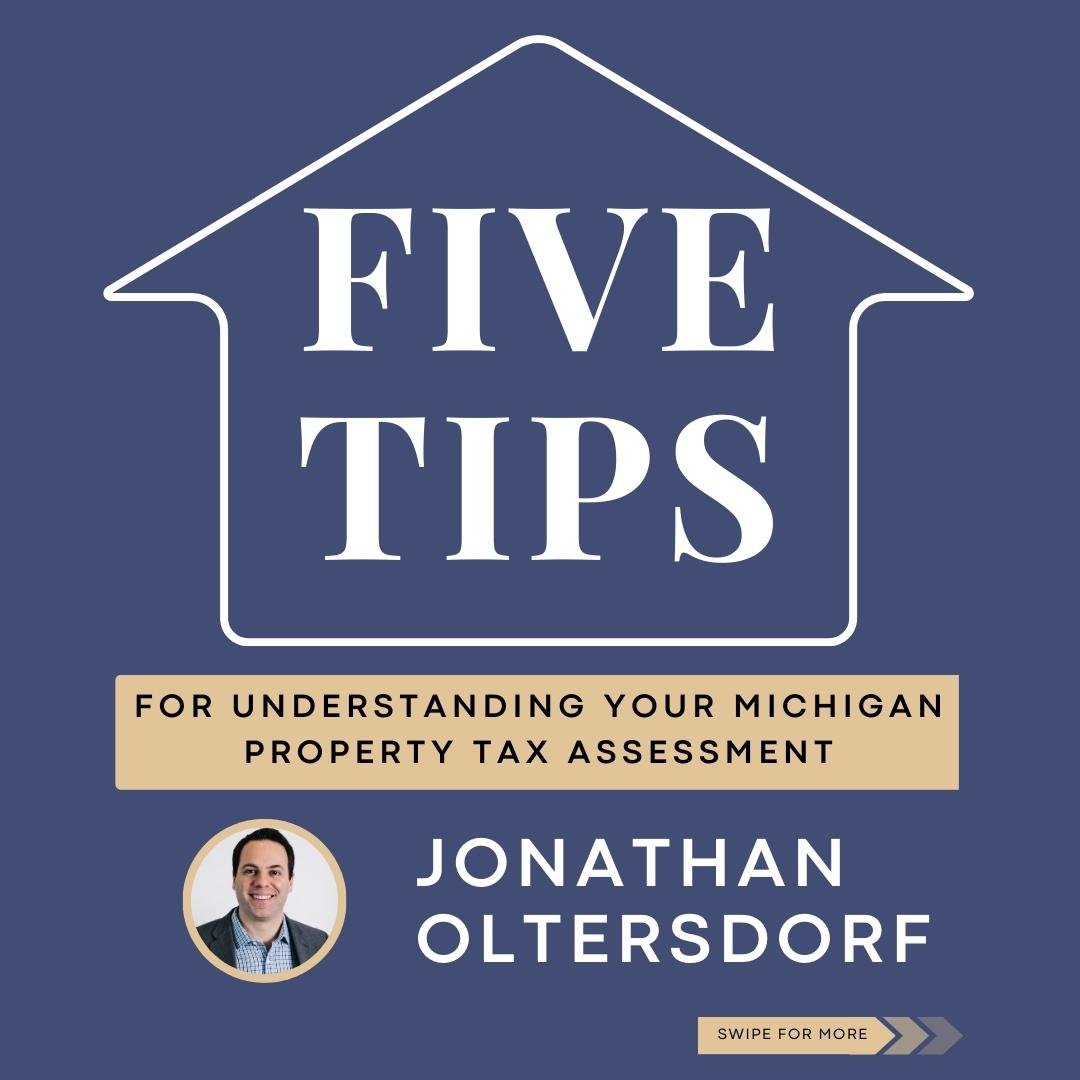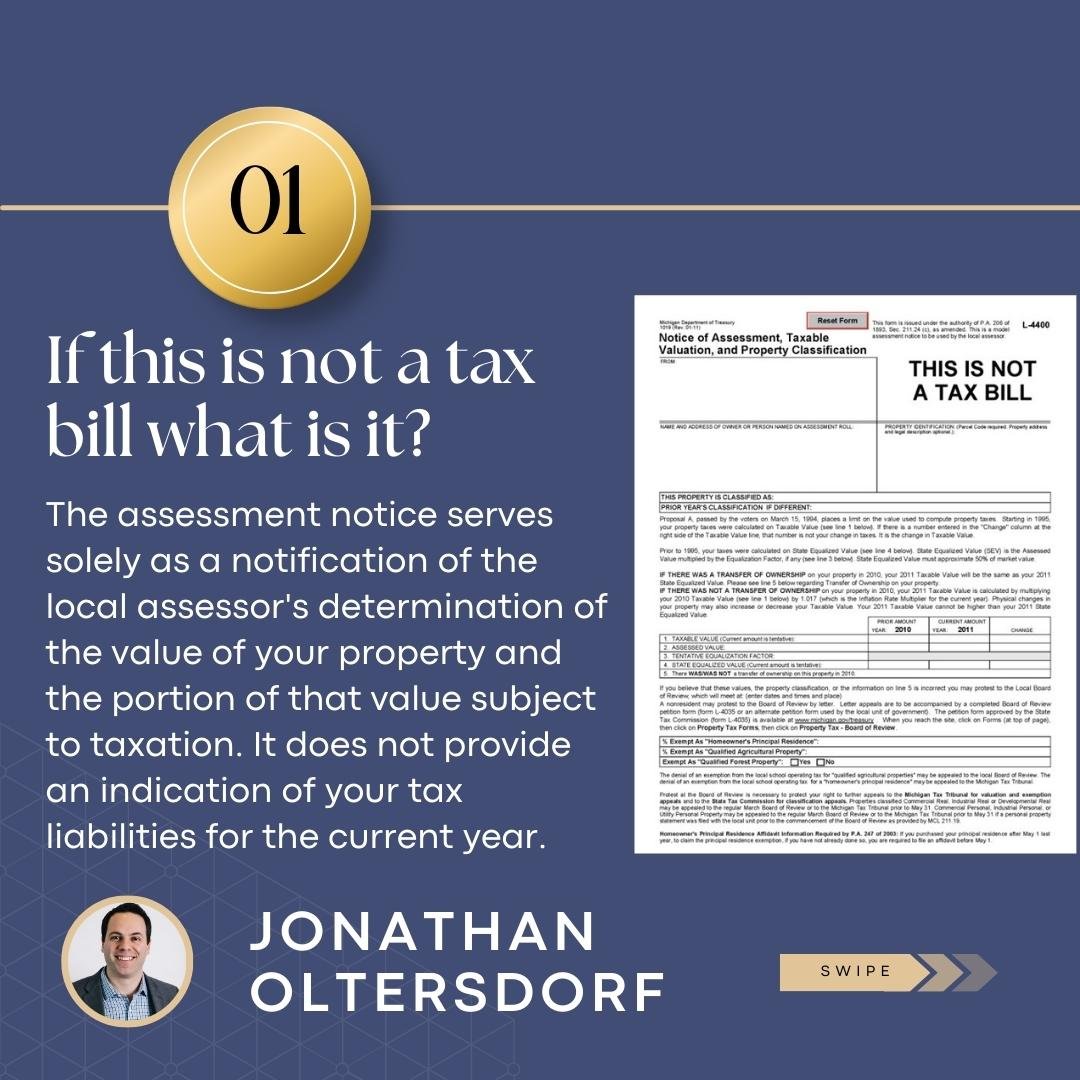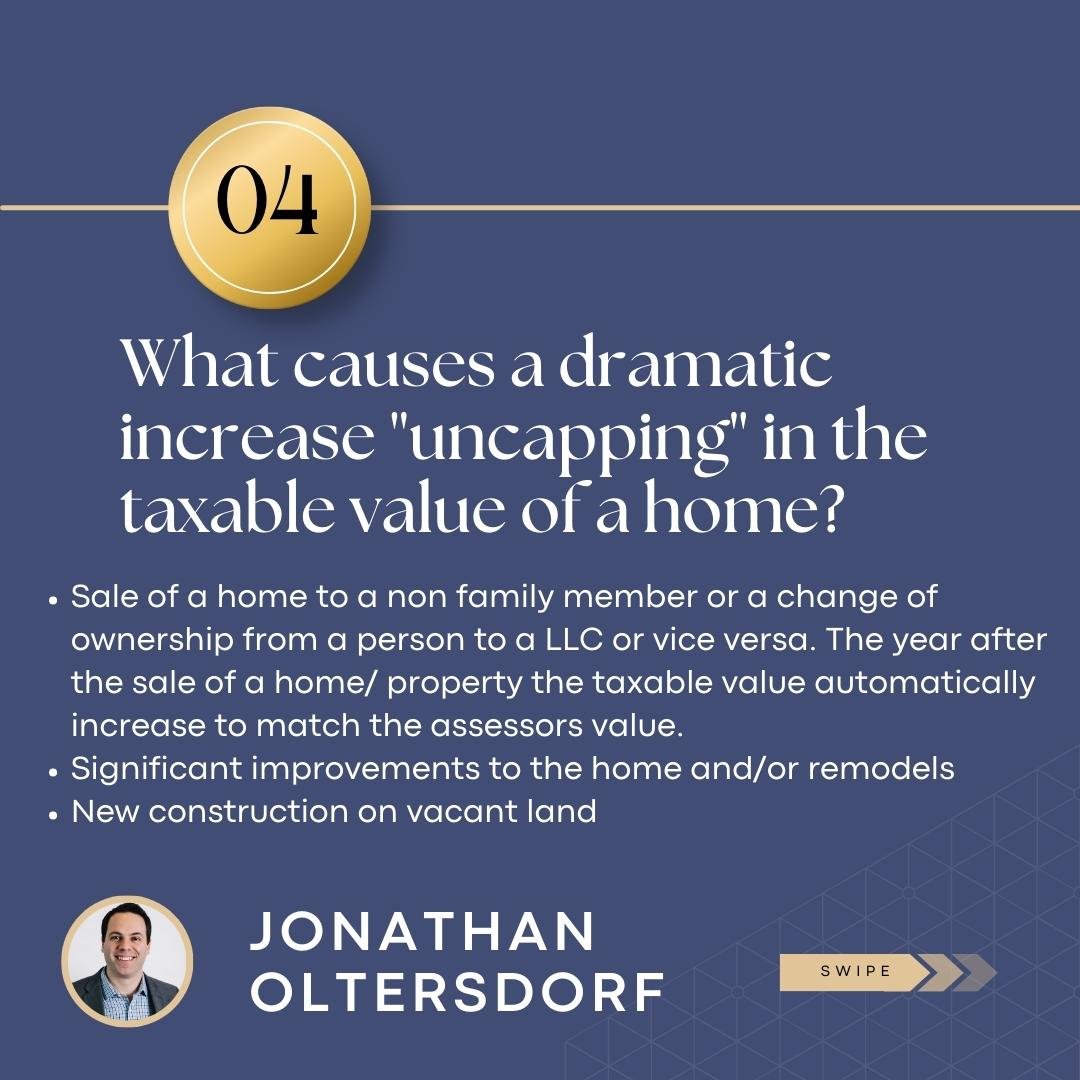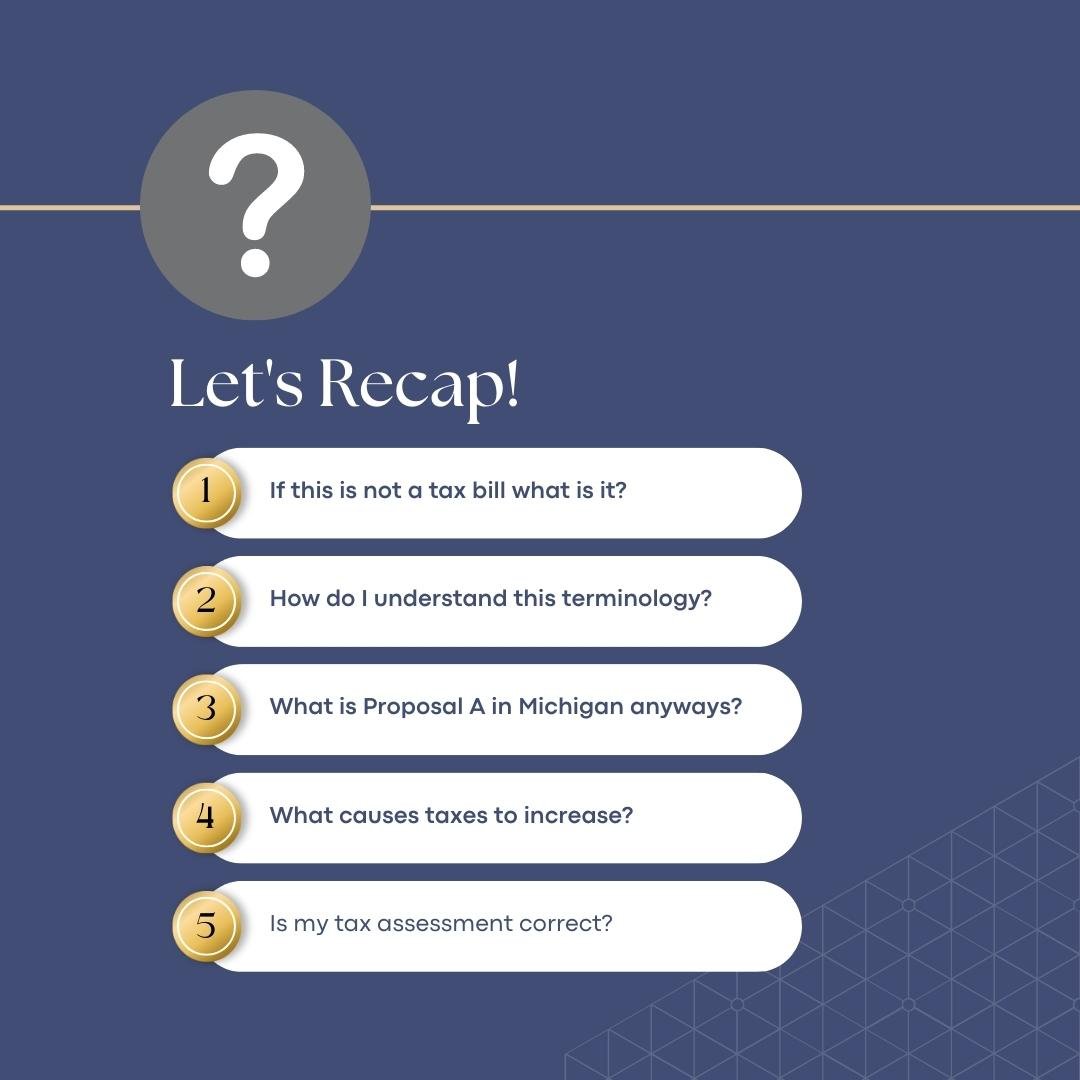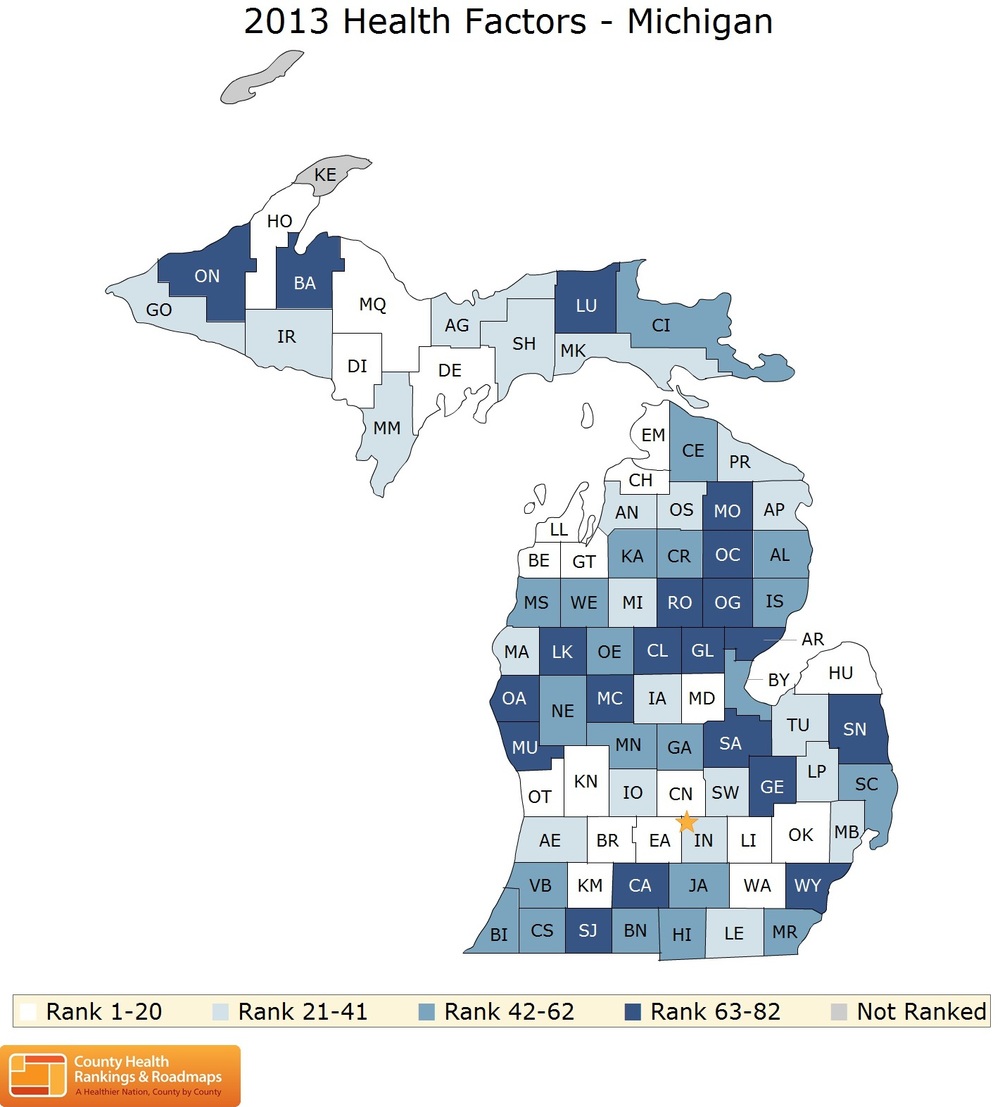Principal Residence Exemption Legislation Unanimously Passes Senate
Today, the Michigan Senate voted 38-0 in support of legislation providing a fair process when it comes to their property taxes.
Senate Bill 349, sponsored by Senator Dave Hildenbrand (R-Lowell) creates two Principal Residence Exemption (PRE) filing dates; one on June 1st, and the other on November 1st. Additionally, this legislation allows bank-owned properties to retain their PRE so that buyers can qualify at the lower rate of taxation. This is particularly important since foreclosures have flooded the market in recent years.
Senate Bill 349 now heads over to the House for consideration.
Copyright Michigan Association of REALTORS®. Reprinted with permission.
IF THIS BECOMES LAW WHAT DOES IT MEAN?
Currently, Michigan property owners have to file a principal residence exemption form by May 1 to get lower primary home taxes for the full year. If you miss the May 1 deadline or you purchase a house that wasn't a primary home after May 1 you will pay the higher non homestead taxes until the following year. If this bill becomes law the new deadline for your summer tax bill (the much higher bill) will be June 1 and November 1 for the winter tax bill. In short, it will save the home purchaser money if you buy a non-homestead (vacant or non primary residence) home after May 1 and intend to occupy the home as your primary residence.
Exemptions for bank owned properties.
This also appears to be a major tax break for lending institutions and banks that can file an exemption to receive the homestead property tax rate (primary home rate) for vacant assets that are currently for sale. This also could allow for purchasers to qualify for their mortgage based on the lower tax rate and qualify for a slightly more expensive home.
Here is the most relavent portion of the bill:
An owner of property may claim 1 exemption under this section by filing an affidavit on or before May 1 FOR TAXES LEVIED BEFORE JANUARY 1,2012 OR, FOR TAXES LEVIED AFTER DECEMBER 31, 2011, ON OR BEFORE JUNE 1 FOR THE IMMEDIATELY SUCCEEDING SUMMER TAX LEVY AND ALL SUBSEQUENT TAX LEVIES OR ON OR BEFORE NOVEMBER 1 FOR THE IMMEDIATELY SUCCEEDING WINTER TAX LEVY AND ALL SUBSEQUENT TAX LEVIES
You can read and/or download the full 27 page Senate Bill 349 by clicking here:
http://www.legislature.mi.gov/documents/2011-2012/billengrossed/Senate/pdf/2011-SEBS-0349.pdf
UPDATE: APRIL 26, 2012: Yesterday, the Michigan House of Representatives voted 109-1 in support of legislation providing a fair process when it comes to their property taxes. The bill now heads to the Governor, where we expect his signature before May 1st.
UPDATE #2: MAY 1, 2012: PRE Enhancement Legislation Signed by the Governor 5/1/2012 Today, Governor Snyder signed legislation providing homebuyers a fair process when it comes to their property taxes. Senate Bill 349, sponsored by Senator Dave Hildenbrand (R-Lowell) creates two Principal Residence Exemption (PRE) filing dates; one on June 1st, and the other on November 1st. Additionally, this legislation allows bank-owned properties to retain their PRE so that buyers can qualify at the lower rate of taxation. This is particularly important since foreclosures have flooded the market in recent years.
Below are a few FAQ’s regarding the new law:
1. Does the legislation take effect this year?
A. Yes. The new law moves current May 1st PRE filing deadline to June 1st of this year.
2. How does it work?
A. If a homebuyer purchases a Principal Residence and closes on or before June 1st, they can take advantage of a significant tax break by filing for a Principal Residence Exemption.
3. When is the additional filing date?
A. November 1st. This allows for tax relief in those communities that still collect a portion, if not all of their non-homestead mills, on the December tax bill.
4. If my client buys after June 1st this year, what can they expect?
A. If a homebuyer purchases a home after the June 1st filing deadline, and their local tax authority collects all non-homestead mills on the spring tax bill, their property taxes may not reflect the exemption until the next tax bill. If however that local tax authority collects a portion of the non-homestead mills on the winter tax billing cycle, the homebuyer can file for a PRE before the November 1st and exempt themselves from any non-homestead mills collected on the December bill.
5. What about the foreclosure provisions?
A. Banks have the option of maintaining the home’s Principal Residence status by filing a Conditional Rescission. By maintaining this exemption status, it’s the expectation that borrowers will be able to qualify for financing on these foreclosed properties at the PRE rate and begin paying the lower rate of taxation as soon as they move into the home. To make up for the lost school revenue, banks will be assessed a newly defined tax that will keep the 18 mills (which they presently pay on any foreclosed property) when a property can no longer qualify as a principle residence. It is important for those REALTORS® working with bank clients to let lenders know about the change and communicate the benefit of filing a Conditional Rescission.
Copyright Michigan Association of REALTORS®. Reprinted with permission.
If you are planning on buying a home in Leelanau County or Traverse City/Grand Traverse County you should continue to follow this bill as it could potentially become law in the near future.
Jonathan Oltersdorf
Vicky Oltersdorf
Oltersdorf Realty, LLC
Phone: 231-271-7777
E-Mail: realestate@oltersdorf.com
